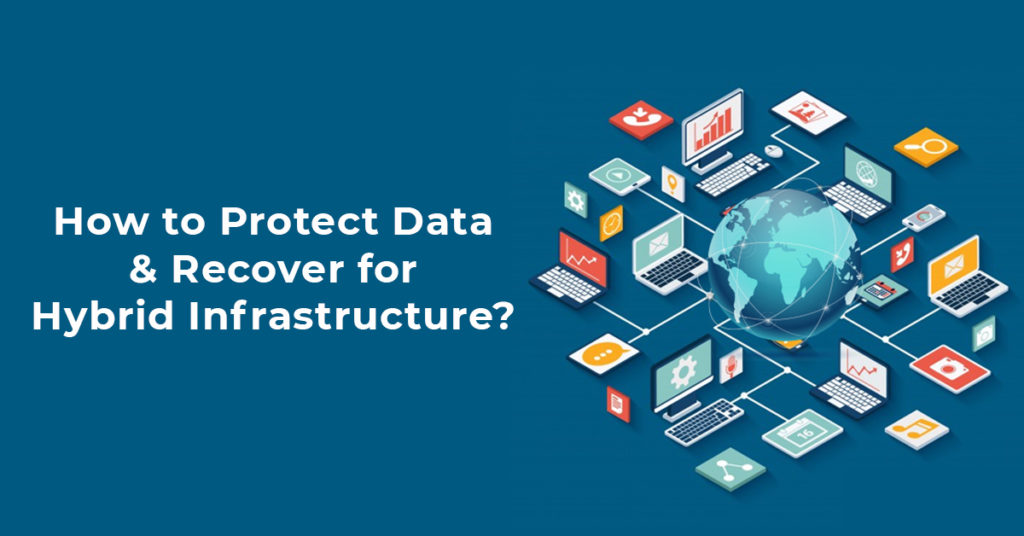
For more than three hundred years, the word ‘hybrid’ was rarely used in polite company, existing mainly as a biological term. Today, it is enjoying late-blooming popularity. People drive hybrid cars and enterprises deploy hybrid infrastructure. In other words, the worldwe live in is increasingly hybrid on its own.
Cloud computing and digital transformation have always played extremely essential roles in expanding infrastructure beyond the physical limitations of company premises. There are very few organisations that do not have a presence on or even an interaction with the cloud. Nevertheless, that expansion has also led to much soul-searching over issues like security, resilience and continuity.
Protecting your data and continuity
The level of security, data integrity, resilience and continuity foron-premises data centres is set and governed by the organisations that own them. Cloud-based data centres are not controlled directly by enterprises that use them but by third-party providers who basically own them. Not surprising, this initially made many organisations quite hesitant to entrust their data to outside providers.
Most of those concerns have been soothed over time. Any uncertainties have been considered negligible due to the pandemic which accelerated the adoption of cloud-based infrastructure by enterprises, particularly with the large-scale shift to remote working which was accompanied by lockdowns in many countries.
In addition, the impetus is driving many organisations to digitally transform their businesses that has resulted in many businesses/organisations adopting more cloud-based infrastructure.
The advantages of hybrid cloud
It is no exaggeration to state that hybrid cloud is becoming a prominent force in the IT landscape. IDC recently forecasted that cloud infrastructure spend would grow to $74.3 billion this year, with shared cloud infrastructure accounting for $51.4 billion and dedicated cloud infrastructure $22.8 billion.
Research by IDG in 2020 has revealed that 81% of enterprises had adopted hybrid cloud as part of their IT infrastructure strategy. A mere 8% retained entirely on-premise infrastructure.
The shift to hybrid infrastructures requires organisations to place a much greater emphasis on data integrity, security and resilience. Enterprise data backup and recovery is not a simple process. Securing large amounts of data in complex IT environments can be a major challenge. Applying that process in a hybrid environment can be even more complicated.
To try and overcome these issues, businesses need to deploy enterprise-class technology and data protection services. Businesses are managing critical data – and data is becoming increasingly critical to all organisations – and they need an effective backup and recovery strategy in place.
Managing your Hybrid Infrastructure
Business continuity and recovery is vital for businesses in today’s world. The cost of data loss, a security breach or downtime, can be potentially fatal. With hybrid cloud, organisations can replicate data from on-premise systems in the cloud. It can also deliver a much less costly option than maintaining a physical secondary disaster recovery site.
But a hybrid infrastructure can also lead to more complex IT environments because businesses have to manage diverse types of infrastructure across various cloud providers and on-premises.
Businesses can find it difficult to manage and secure a range of private, public and hybrid cloud technology with physical, virtual and cloud servers. As a consequence, more and more organisations are turning to managed services to keep pace with their rapidly changing business requirements.
How Uniware Systems can help
Uniware Systems has decades of experience in the data centre world and in ensuring operation-al resilience across organisations. With a reputation as a Dell EMC Platinum Partner in Chennai, Uniware Systems is eminently qualified to help enterprises find the optimum infrastructure for their organisation.
Data protection forms a core part of any business continuity plan and Dell EMC Data Protection Suite uses easy to load and non-intrusive tools to determine the parameters required to improve existing data protection. It provides an insight in-to how businesses can reduce business expenditure and increase efficiency when it comes to backup and recovery processes. The assessment ensures businesses have the appropriate data protection strategy for all their workloads, including hybrid cloud, big data and mobile.
Where and how data is stored, accessed, managed and secured is an important consideration for enterprises, especially with the growing popularity of hybrid infrastructure. With Dell EMC Data Protection Suite, businesses can gather configuration and performance data from their storage systems without disruption. The information provided is used to produce an in-depth analysis.
Should any issues, or scope for improvement be identified during the health check, Uniware Systems can provide a recommendation that helps you understand the right course of action to take. This could be as simple as steps to maintain the status quo, or it may be the foundation of a new solution design, which Uniware Systems can assist you with. In addition to the above-mentioned points, Uniware Systems can also advise you on the best solutions to suit your individual use case.







